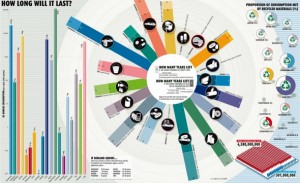In a world that has seriously changed and is continuing to change at an exponential rate, lots of ‘unthinkables’ become normal everyday. One of the biggest shifts in social behaviour over the last 30 to 50 years has been this idea that you now earn respect, rather than just get it because you are older or give it because you are younger. I think the primary reasons for this are:
1) information is so readily available, young people are extremely informed and therefore sophisticated, in some ways, empowered and often come across entitled
2) there is so much choice, young people know they don’t have to suffer through an awful work experience, they can move on or start their own thing. Largely the Internet offers opportunities for this
3) the quantum age is upon us, collaboration, connection, EQ and all the other ‘new’ things are fast becoming the norm, or old news; and this involves relationships rather than hierarchies; and solutions rather than dictations. Young people are very well suited for this. They are naturally expressive, articulate, web-thinkers, networkers, collaborators and global citizens.
Young people have been taught from an early age to challenge the system, to have an opinion, to express themselves and their emotions. They have grown up with technology and so are a lot more familiar with it than older people are; and you’ve been asking them to fix the DVD player since they were six. You’re a dinosaur when it comes to social media (I know I am generalizing) and current music trends and understanding the speed with which change occurs. You’re closed minded when it comes to fashion statements, diversity, transformation; and being flexible and adaptable to ‘whateva’s happening dude’. You’re rigid when it comes to spelling and grammar and business etiquette and you don’t consider friendships and love interests real if you have never met them in person. You talk about the old days like they matter and you care about face to face connections, your long-standing old-boys clubs, the liberation movements of your wonderful youths, the Beatles and Bob Dylan and even Elvis sometimes; and sometimes you are so rude to me for no reason, or certainly reasons I don’t fully understand (which you never explain to me satisfactorily). These are obviously huge generalisations I know, but sometimes generalisations hold truths inside them.
So when people over 45 are considering the new world of work, these are some of the questions they might ask:
a) how did best business practice change so much; and when?
b) are we (Boomers and Silents) still really in control of decision-making?
c) do we, as the generation in control of money and politics, really have any control?
d) what is happening to (and in) the world of work today?
e) are we plunging into a replay of the ‘Great Recession’ (if we ever got out of it in the first place)?
f) institutional changes are happening and I wonder if I always understand them, or like them or understand the reasons behind the change?
g) education is not what it was in ‘my day’; and I don’t know what to do about the young people coming into my business, who appear to be almost illiterate and cannot take initative
h) mother earth is a mess, but what can I do about it?
i) our political and economic leaders are the same age as me – and I am not sure I have the capacity and humility to guide myself through life, never mind my employees (who never stop leaving and changing) – so I am not sure I fully understand the world today.
j) will South Africa’s mines eventually be nationalized and what impact will this have on our economy long-term?
k) will spirituality, religion, philosophy provide us with the answers we need?
To answer these questions people over 45 generally read the newspaper. The problem with this is it is
1) wasteful of resources (paper, ink, time, machines) and labour intensive
2) time-consuming and restrictive to consume
3) newsprint is generally one sided because it has been edited by one person
There is nothing wrong with the above and there is something wonderful about having the tangible object in your hands to read and keep if you want to. There is nothing wrong with face to face meetings and Bosberaads and with talking about the old days. There is something wonderful about being over 45 because you have experience, hindsight, gravitas, maturity and a sense of comfort in yourself, which can only come from living with yourself for over 45 years.
There are also an awful lot of you. 80% of the increase in the world population until 2050 will be people over 60. You have always had a lot to say. Some argue that you are the last properly educated generation. There is much to celebrate. But I urge you to form genuine and trusting relationships with younger people, who for the first time in social history, are just as valuable as mentors as you are. It’s just different life experience and information you are swapping.
And if you can put information into an infographic, like the one above, even better. Young people are visual, it’s how they have been stimulated since the day they were born.
Start talking with an open-mind. Get creative in how you think and behave. It will go a long way to building relationships and therefore retaining your valuable talent, which is what mentoring is all about.



